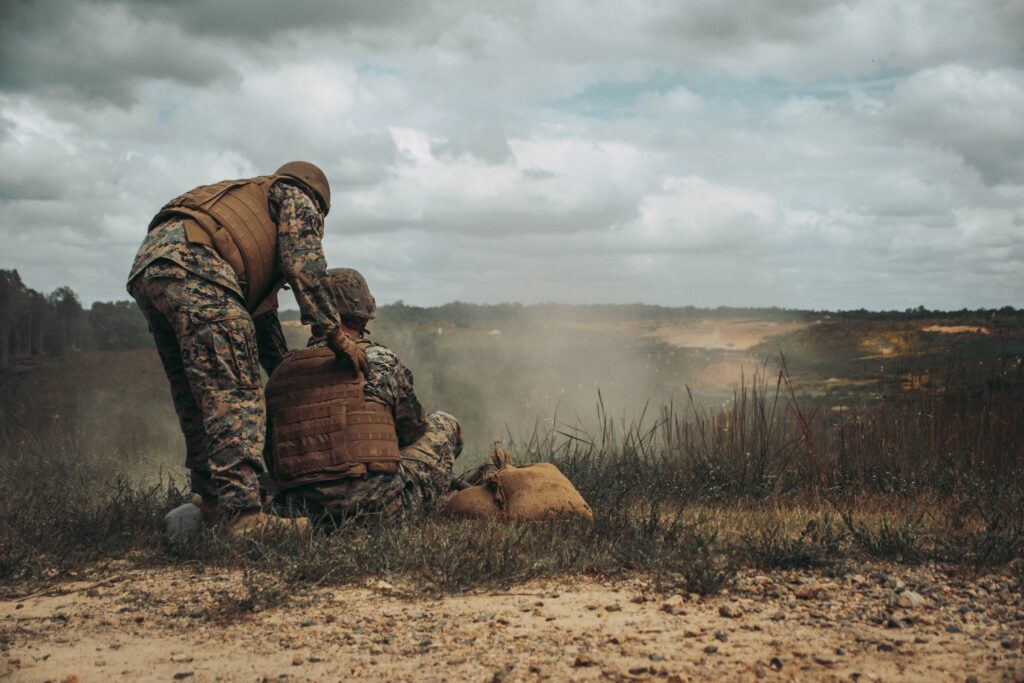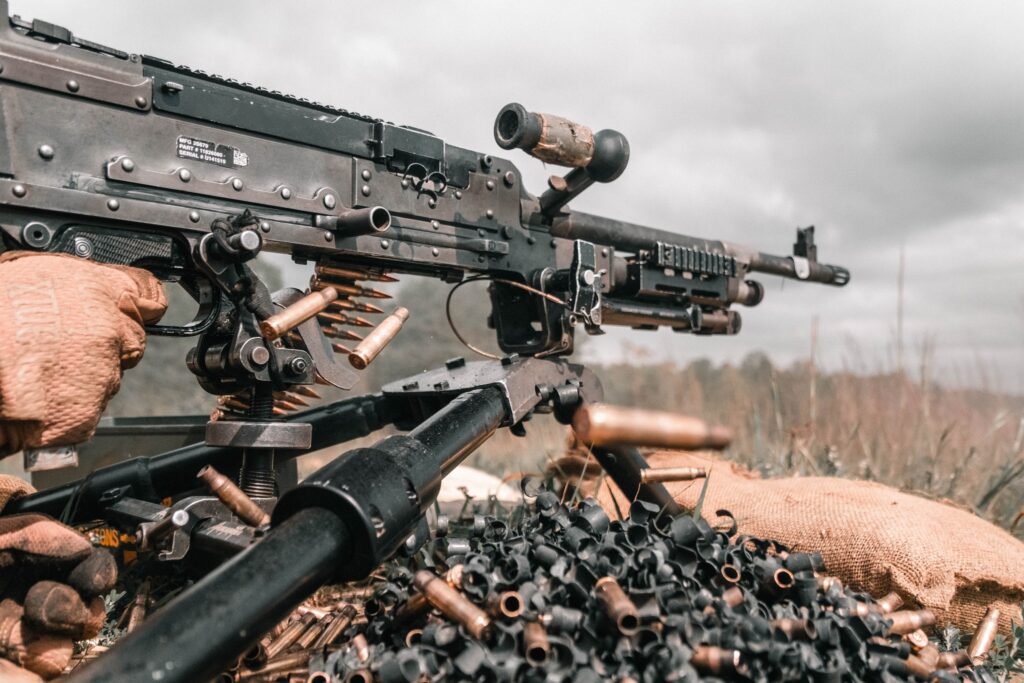Basic Officer Course
Amphibious Ops
“Platoon Attacks Reinforced”
In Week 21 at The Basic School (TBS), your Marine will focus on machine gun-reinforced platoon attacks, honing coordination and communication skills. Midweek brings classes on command and control, ethical leadership, and Marine Leader Development II to boost decision-making and team-building. The week wraps up with amphibious operations training, covering planning, beach landings, and case studies of historic amphibious assaults.

Platoon Attacks, Leadership, and Amphibious Operations
Week 21 at The Basic School (TBS) focuses on both tactical operations and essential leadership development. Marines will continue to build upon their previous experiences with an emphasis on command and control, leadership, and amphibious warfare.
Platoon Attacks Reinforced with Machine Guns
The week kicks off with platoon attacks similar to those conducted in Week 20, but this time, they will be reinforced with machine guns. The integration of these crew-served weapons brings a new level of complexity to the operations, as Marines will need to coordinate the placement, movement, and firepower of machine guns to support their assaults. These exercises will test their ability to:
- Coordinate fire and maneuver: Ensuring machine guns provide suppressive fire while rifle squads advance.
- Implement combined arms tactics: Maximizing the firepower of machine guns alongside other assets like indirect fire or air support.
- Maintain communication: Seamless communication between platoon leaders and their machine gun teams is crucial for executing successful attacks.
These live-fire exercises reinforce the importance of fire support, tactical planning, and the execution of offensive operations in real-time combat scenarios.
Command and Control Classes
Midweek, Marines will head back to the classroom for a series of critical leadership lessons, starting with Command and Control. This class focuses on the principles and tools necessary for leaders to effectively communicate and control their units in combat. Marines will learn about:
- Decision-making in high-pressure situations: The importance of timely and informed decisions in dynamic environments.
- Communication techniques: How to ensure clear and efficient communication across various levels of command.
- Command relationships: Understanding the structure of authority in joint and combined operations, including how to coordinate with other military branches or international forces.
Ethics II and Marine Leader Development II
Continuing their ethical and leadership training, Marines will participate in Ethics II and Marine Leader Development II. These sessions are designed to further develop the moral and leadership qualities expected of Marine officers. Key aspects include:
- Case studies: Examining real-world situations where ethical leadership played a crucial role.
- Leadership challenges: Addressing the unique challenges leaders face in developing and maintaining ethical teams in combat environments.
- Marine Leader Development: This session will focus on the continued growth of officers as leaders, reinforcing the values of honor, courage, and commitment. Topics include developing a leadership philosophy, mentoring subordinates, and promoting teamwork.
Fitness Report and Awards Writing Classes
Marines will also receive instruction on Fitness Reports and Awards Writing. These administrative classes are vital for officers, as they will be responsible for evaluating their Marines and ensuring that deserving individuals are recognized for their achievements. The classes cover:
- Fitness Reports (FitReps): How to accurately assess the performance of Marines, providing fair and constructive evaluations that can impact their careers.
- Awards Writing: The procedures for recommending Marines for awards, including how to write clear, impactful citations that reflect the achievements and sacrifices of service members.
Amphibious Operations
The week will conclude with classes on Amphibious Operations, a key component of Marine Corps doctrine. These sessions will cover the fundamentals of amphibious warfare, from planning and executing beach landings to coordinating with naval forces. Topics include:
- Amphibious planning: The complexities of coordinating operations between land, sea, and air elements.
- Beach landings: The tactical challenges of conducting operations in littoral zones, including securing beachheads and moving inland.
- Historical case studies: Analyzing famous amphibious operations like D-Day or Inchon, drawing lessons from past successes and challenges.
This training is essential, as amphibious warfare remains a cornerstone of the Marine Corps’ ability to project power and respond to crises worldwide.
Throughout the week, your Marine has been engaged in machine gun-reinforced attacks and leadership development classes. Be sure to ask them about their experience with coordinating platoon-level fire and maneuvers. Stay tuned for more updates as your Marine continues through this transformative journey.
Semper Fidelis,
SgtMaj Paul Davis (USMC Ret)
